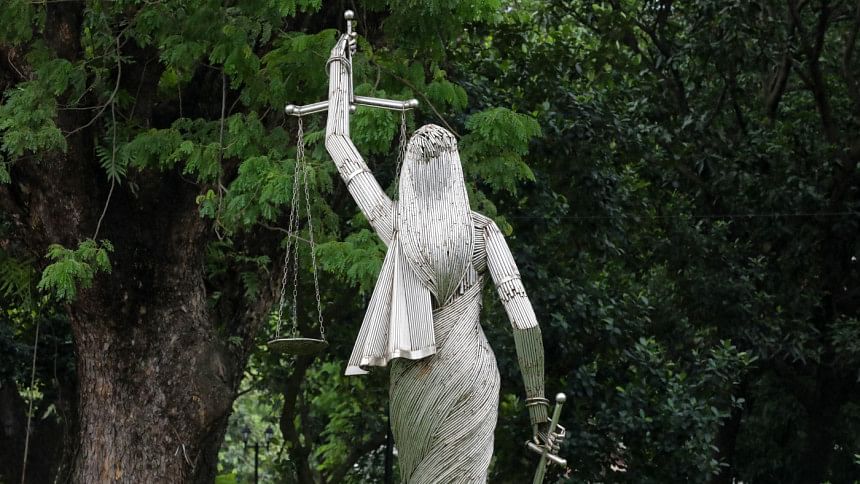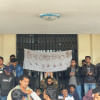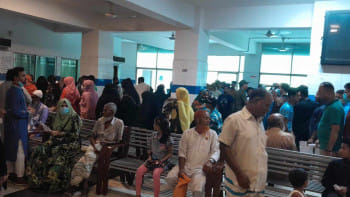The importance of gender quota

Speaking with some of the students during the quota reform protestors' blockades in Shahbagh, it was observed that some factions vehemently supported the preservation of the female quota, while others argued for its dissolution. Intriguingly, a contingent of female students was actively relinquishing their quota privileges, asserting that the playing field has already been levelled, thereby rendering the quota obsolete.
But how much truth does this claim really hold?
Article 29(1) of Bangladesh's Constitution ensures "equality of opportunity for all citizens in employment or appointment to public service." However, Article 29(3)(a) empowers the state to establish "special provisions in favour of any backward section of citizens for the purpose of securing their adequate representation in the service of the Republic."
Therefore, the government's quotas for diverse communities in government jobs are consistent with this constitutional provision, on paper at least. However, reformation was still required, which led to the recent protests.
On July 21, the Supreme Court's Appellate Division overturned the High Court's decision to reinstate the quota system in government posts after deeming its abolition unlawful. The order allotted 93 percent of civil service recruitments on merit, five percent for children of freedom fighters and Biranganas, one percent for ethnic minorities, and one percent for people with disabilities and people of the third gender. This is immediately applicable to all 20 grades of government, semi-government, semi-autonomous, statutory entities, and corporations.
Until 2018, 10 percent of recruitments were reserved for women from grade 9 through 13 under the Public Service Commission (PSC). However, in the new system, there is no female quota.
In Bangladesh, where gender inequality remains a stark reality in professional sectors, gender quotas are essential for cultivating a more equitable society. Despite significant progress in education and social reforms, women still face substantial barriers to equal participation in the workforce.
Ragib Shahriar, an Economics major at Dhaka University, says, "Many people nowadays will ask, how are women still falling behind? In the HSC and SSC, they are performing better than boys. But what about the everyday struggles women face, including using public transport, fulfilling the traditional duty of taking care of the home, or even just being subjected to social norms and conventions that are not being taken into consideration?"
From entrenched cultural norms that prioritise men's careers over women's to discriminatory practices within hiring and promotion processes that favour male candidates, there are many obstacles that women have to face.
Tahmina Alam*, a fourth-year student at Dhaka University, speaks about the bias against women, "As a woman, I have always had to work twice as hard as my male counterparts to prove that I am just as capable as them. This conscious or unconscious bias against women is active in the most progressive of countries, so of course Bangladesh is not free from it. Women are just as capable as men of acing the preliminary and written parts of the civil job recruitment exam, but I fear there will always be a bias against women active during the viva part. The quotas ensured there was a minimum level of female representation in the civil service, despite such bias."
Sanjida Samiha, majoring in Economics at Dhaka University, highlights the privilege that obscures the debate over eliminating gender quotas. She says, "There are a lot of women from marginalised communities and rural areas, so saying quotas for women aren't needed now just shows how ignorant we are in our privileged bubble."
Samiha adds that even with the previous quota system, which was abolished in 2018, it often failed to cater to women who actually needed it, but now its complete removal further exacerbates gender inequality.
The debates around the quota system can be further extended by addressing its cis-normative nature, which actively disregards transgender and other gender-diverse individuals. Last year, when Dhaka University introduced a special quota for transgender students, it was met with heavy criticism from some of the students. Although including members of the third gender in the new quota system is a foot in the right direction, combining this contingent with disabled individuals makes little sense, since they are two discrete groups with unique needs.
Sarah Alam*, currently studying at a private university, observes, "I never see any conversations about the absence of gender diverse people in decision-making positions, but with their inclusion, let's see what's in store for everyone. This could be the first step towards a society where they are not so neglected, even if it's one percent."
The presence of women, transgender, and gender-diverse individuals in government roles enriches the decision-making process with a wider range of perspectives and experiences. This diversity is crucial for developing policies and services that reflect the realities and needs of the entire population. For example, having more women in government can lead to more attention to issues such as gender-based violence, reproductive rights, and childcare. Similarly, the inclusion of transgender and gender-diverse individuals can promote policies that protect their rights and ensure their access to essential services.
Quotas also play a vital role in challenging and changing societal perceptions and stereotypes. By ensuring that women, transgender people, and gender-diverse individuals are visible in government positions, quotas help normalise their presence and capabilities in professional settings. This visibility can inspire others from these groups to pursue similar careers, creating a ripple effect of empowerment and progress. Moreover, it helps in gradually changing the cultural mindset that often restricts the roles and contributions of these groups in society.
In a country where women encounter barriers like early marriage and domestic responsibilities and gender-diverse individuals face discrimination and stigma, gender quotas are pivotal. It is commendable that the government has taken steps to include gender-diverse people, but the question for equality now remains for the women who are not in the urban bubble of gender equality, which the government failed to account for.
*Names have been changed upon request.
Azra Humayra is majoring in Mass Communication and Journalism at Dhaka University. Find her at [email protected]

 For all latest news, follow The Daily Star's Google News channel.
For all latest news, follow The Daily Star's Google News channel. 








Comments